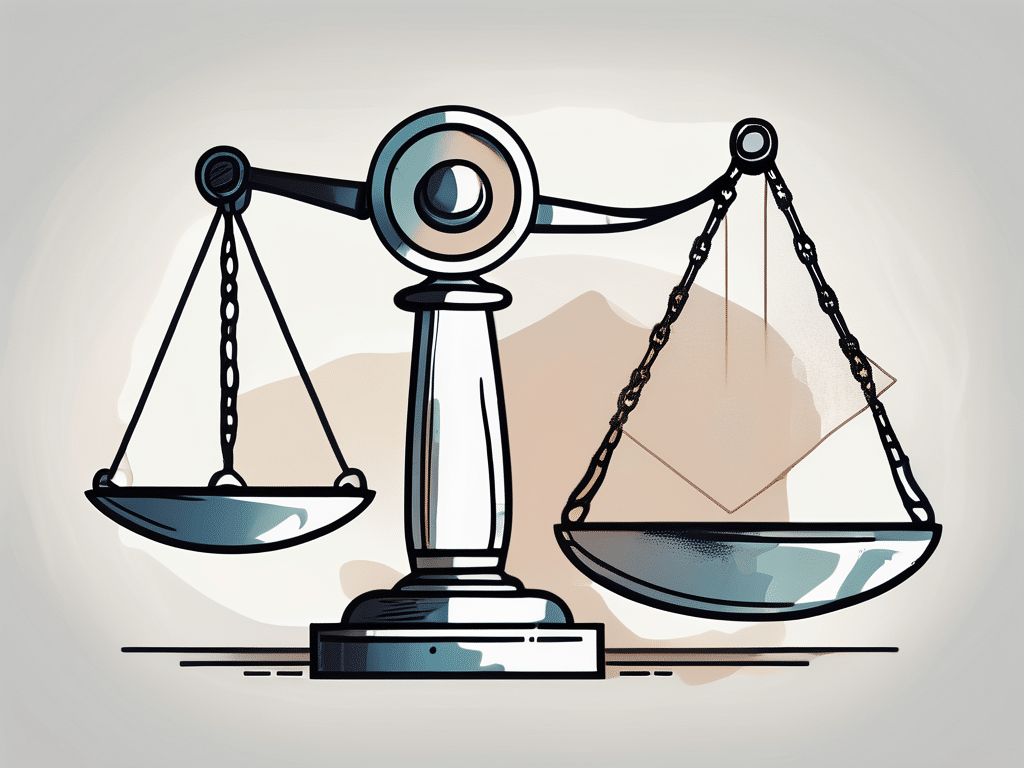Finding a business lawyer who is the right fit for your organization can be a crucial step in ensuring legal compliance and protecting your interests. Whether you are a startup or an established business, understanding the role of a business lawyer is essential in identifying your legal needs and searching for the right professional.
Understanding the Role of a Business Lawyer
A business lawyer plays a vital role in providing legal guidance and assistance to companies. They serve as trusted advisors who help navigate the complex landscape of business law and ensure compliance with regulations. With their experience in various areas of law, they offer valuable insights on legal matters that impact your organization.

When it comes to drafting and reviewing contracts, a business lawyer is an invaluable asset. They meticulously analyze every clause and provision to ensure that your business interests are protected and your agreements are legally sound. By having a lawyer review your contracts, you can avoid potential pitfalls and minimize the risk of disputes.
Intellectual property is another crucial area where a business lawyer can provide invaluable counsel. They help you safeguard your trademarks, copyrights, and patents, ensuring that your innovative ideas and creations are protected from infringement. With their experience in intellectual property law, they can guide you through the process of obtaining and enforcing your intellectual property rights.
In addition to contract and intellectual property matters, a business lawyer can also assist you with business formation and incorporation. They have a deep understanding of the legal structures available and can help you choose the one that best suits your enterprise. Whether you’re considering a sole proprietorship, partnership, or limited liability company, a business lawyer can provide the guidance you need to make an informed decision.
Employment law is yet another area where a business lawyer plays a crucial role. They ensure that your organization is in compliance with labor regulations, helping you navigate the complexities of hiring, firing, and employee contracts. By seeking their advice, you can minimize the risk of legal disputes arising from employment-related issues.
Now, you might be wondering, why is a business lawyer so important for your organization? Well, apart from being a legal resource, they are a strategic partner who can help you mitigate risks and anticipate potential legal issues. By having a lawyer on your team, you can proactively address legal concerns, protecting your organization from costly disputes and potential litigation.
Moreover, a business lawyer provides peace of mind, knowing that you have a professional who understands your business and has your best interests at heart. They can assist you in making informed decisions by providing legal advice specific to your industry and business objectives. With their guidance, you can navigate the legal landscape with confidence, knowing that you have a knowledgeable ally by your side.
Identifying Your Legal Needs
Before embarking on the search for a business lawyer, it is essential to identify your organization’s legal requirements. Evaluating your legal needs helps you determine the specific areas of practice and experience your potential lawyer should have.
Understanding the intricacies of your business’s legal landscape is crucial for ensuring compliance and protection against potential risks. By conducting a thorough assessment of your operations, you can pinpoint areas that may require legal attention, such as contract negotiations, intellectual property protection, employment law compliance, or regulatory challenges.
Determining Your Business’s Legal Requirements
Start by conducting an internal assessment of your business operations. Identify areas of potential legal risks and challenges you may encounter. These could include contractual matters, intellectual property concerns, employment issues, or regulatory compliance.
Delving deeper into your industry-specific legal needs is also paramount. Different sectors are governed by distinct laws and regulations, necessitating professional legal guidance. For example, healthcare organizations may require lawyers well-versed in healthcare law to navigate complex regulations, while technology companies might seek attorneys in intellectual property and data privacy to safeguard their innovations.
Recognizing the Type of Lawyer Your Business Needs
Based on your legal requirements, determine the type of lawyer that best suits your business. Some organizations may benefit from a generalist lawyer who can handle a wide range of legal issues, while others may require professionals in specific areas of law.
Moreover, considerations such as the size of your organization and budgetary constraints play a significant role in selecting legal representation. Larger companies with extensive legal needs may opt for an in-house legal team or a prominent law firm with a diverse range of experience. Conversely, smaller businesses often find value in engaging a solo practitioner or a boutique law firm that offers personalized services tailored to their specific requirements.
Searching for a Business Lawyer
Once you have a clear understanding of your legal needs, it’s time to begin the search for a business lawyer who meets your requirements. Several methods can help you identify potential legal professionals.

When it comes to finding a business lawyer, utilizing online legal directories can be a game-changer. These directories serve as a valuable resource, providing comprehensive information about lawyers’ experience, areas of practice, contact details, and client reviews. With just a few clicks, you can easily filter and compare lawyers to find the ones that align with your legal needs.
However, it’s important to remember that not all lawyers listed in online directories are created equal. It’s crucial to research and verify the credentials of the lawyers you find through these platforms. Check their licensing, education, and any disciplinary history to ensure they meet the necessary qualifications and ethical standards. After all, you want to entrust your business’s legal matters to someone who is not only competent but also trustworthy.
Leveraging Professional Networks
While online directories are a great starting point, don’t underestimate the power of your professional networks when it comes to finding a business lawyer. Networking within your industry or professional circles can often lead to valuable referrals. Reach out to colleagues, fellow entrepreneurs, or industry associations to ask for recommendations. Personal referrals can provide insights into a lawyer’s reputation, work ethic, and ability to understand your specific industry requirements.
Additionally, attending industry events and conferences can be an opportunity to meet lawyers with experience in your field. Engaging in conversations and seeking referrals in person allows you to build relationships with professionals before making a decision. These events not only provide a chance to expand your knowledge and stay up-to-date with industry trends but also serve as a platform to connect with lawyers who can guide you through the intricacies of business law.
Remember, finding the right business lawyer is a crucial step in protecting your business’s interests and ensuring compliance with legal regulations. Take the time to explore various avenues, from online directories to professional networks, to find a lawyer who not only possesses the necessary experience but also understands the unique challenges and opportunities of your industry.
Evaluating Potential Business Lawyers
After compiling a list of potential business lawyers, it’s essential to evaluate them thoroughly to find the best fit for your organization. Assessing their experience, reputation, and reviews can help you make an informed decision.

Assessing Lawyer’s Experience
Review each lawyer’s experience in handling cases or matters similar to your organization’s needs. Consider the number of years they have been practicing and their success rate in achieving favorable outcomes for their clients. If you have specific legal concerns, ensure the lawyer has experience in the relevant area of law.
Depending on your requirements, you might prefer a lawyer with experience in negotiating contracts, handling mergers and acquisitions, or representing clients in litigation. Matching the lawyer’s area of practice with your specific needs increases the likelihood of receiving tailored legal advice and representation.
Checking Lawyer’s Reputation and Reviews
Research the lawyer’s reputation within the legal community and among their clients. Online reviews and testimonials can provide insights into their professionalism, responsiveness, and communication skills. It’s also helpful to check if they have been recognized for their achievements or if they participate in professional associations related to their practice.
Contacting their previous or current clients for references can provide a more comprehensive understanding of the lawyer’s abilities and working style. Speaking directly with those who have experience working with the lawyer enables you to gather firsthand information that assists in making an informed decision.
Initial Consultation with a Business Lawyer
Once you have narrowed down your options, schedule an initial consultation with each potential lawyer to discuss your legal needs and evaluate their suitability. Properly preparing for the consultation and asking key questions can help you gather useful information and make the final decision.
Preparing for the Consultation
Prior to the consultation, organize any relevant documents or contracts pertaining to your legal needs. This allows the lawyer to have a better understanding of your business and the specific issues you want to address. It’s also important to prepare a list of questions to ask during the consultation to cover all the essential aspects.
Key Questions to Ask During the Consultation
During the consultation, ask questions that help assess the lawyer’s experience, communication style, and alignment with your business goals. Some key questions to consider include:
- How long have you been practicing business law, and what percentage of your practice is dedicated to business clients?
- Have you handled cases similar to mine in the past? How successful were you in achieving favorable outcomes?
- What is your approach to communication with clients? How quickly can I expect responses to my inquiries?
- What are your fees and billing structure? Do you offer alternative fee arrangements?
- Can you provide references from clients you have represented in similar matters?
By asking these questions, you can gauge the lawyer’s experience, communication style, and fees, ensuring they match your expectations and requirements.
In conclusion, finding a business lawyer involves understanding their role, identifying your legal needs, searching through online directories and professional networks, evaluating potential lawyers, and conducting initial consultations. By taking the time to find the right business lawyer, you can protect your organization and receive valuable legal guidance to support your business growth and success


